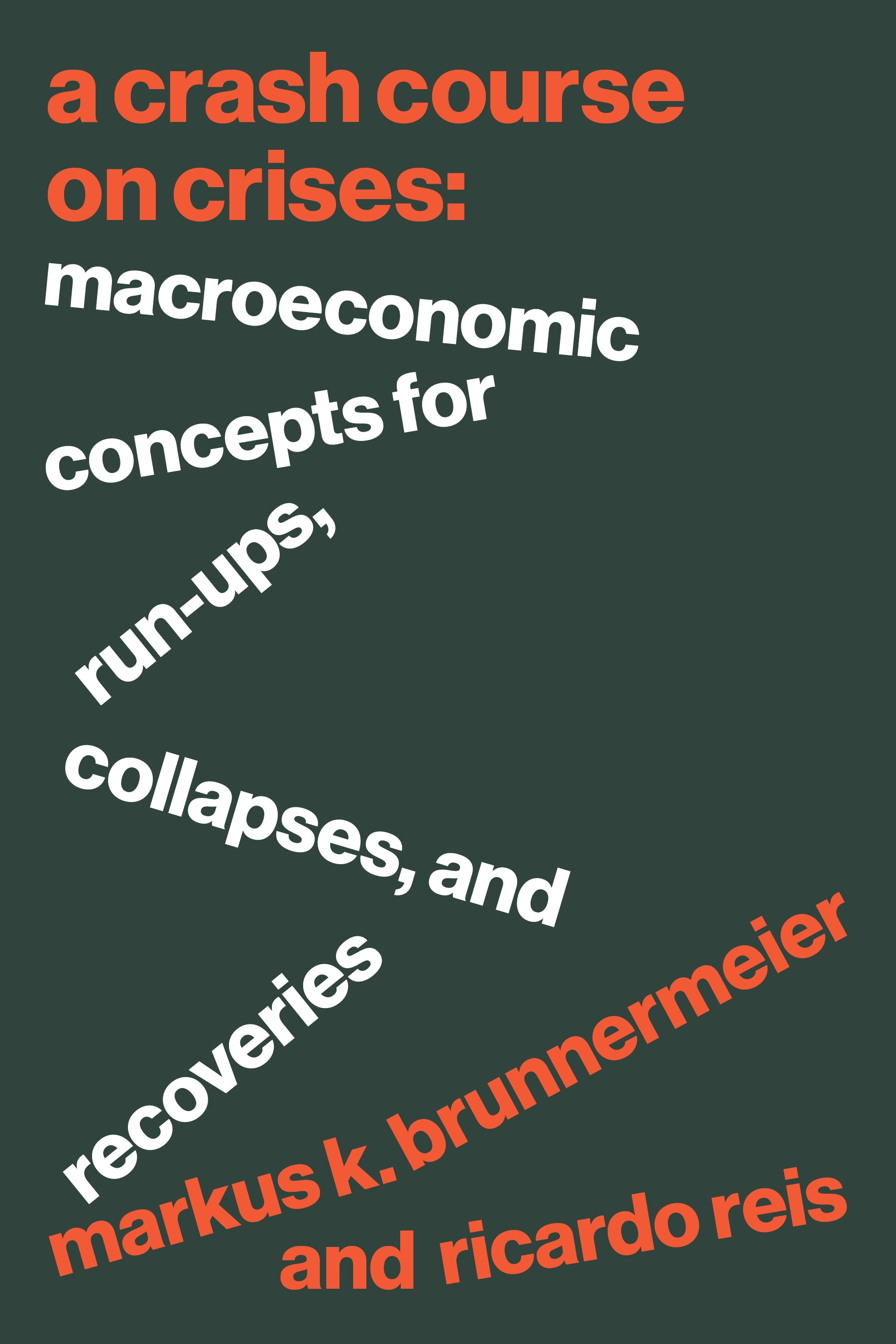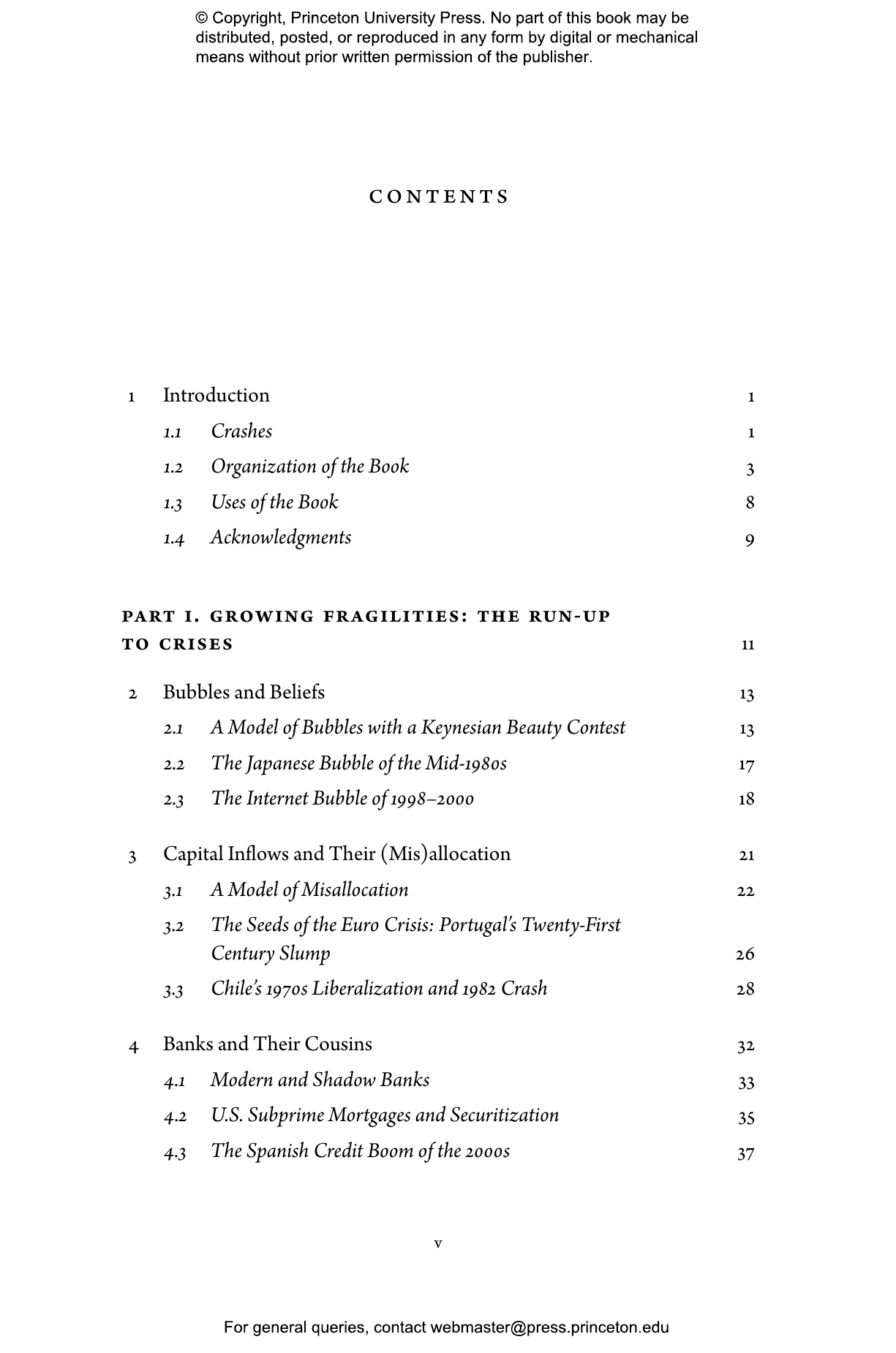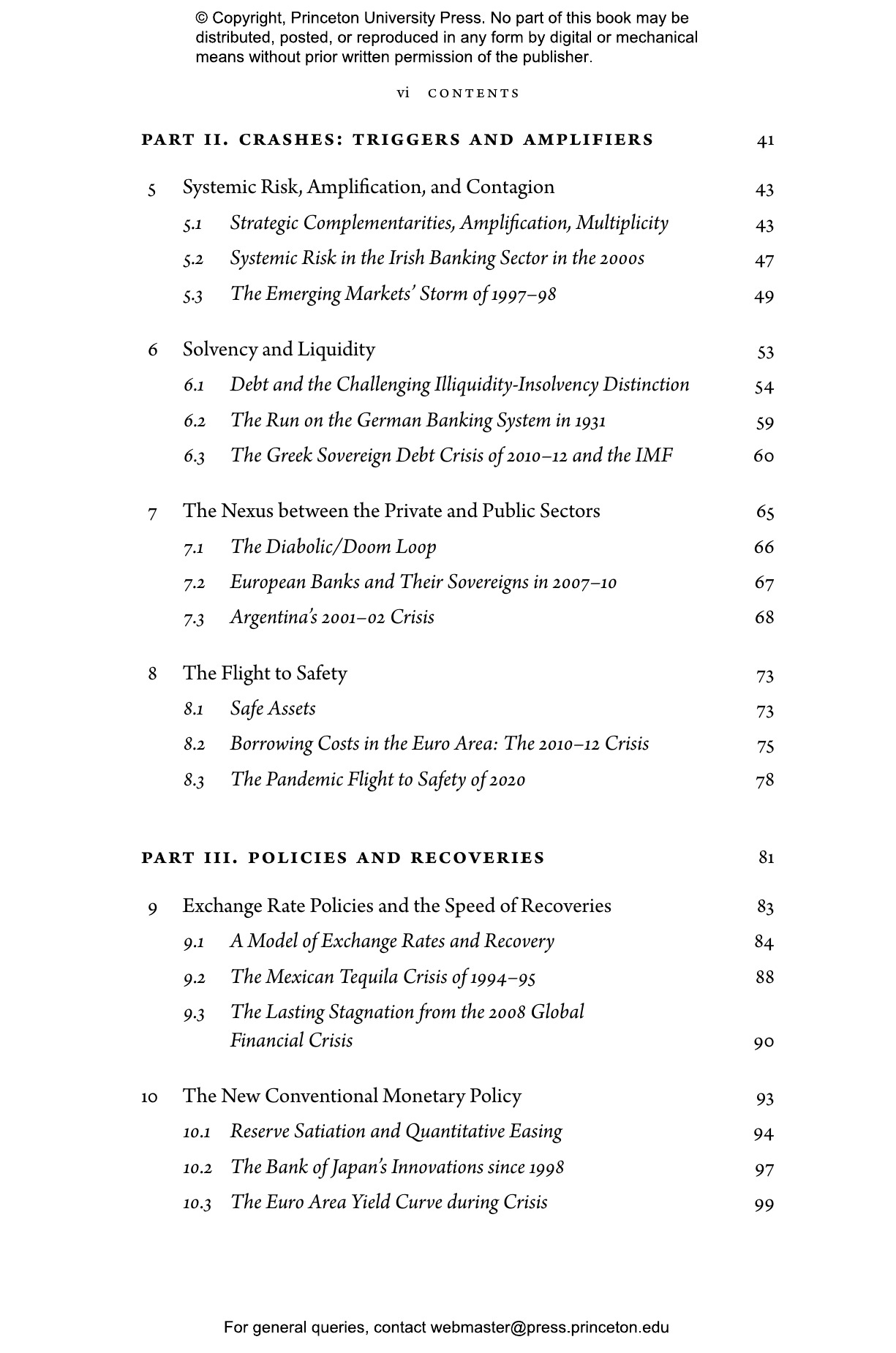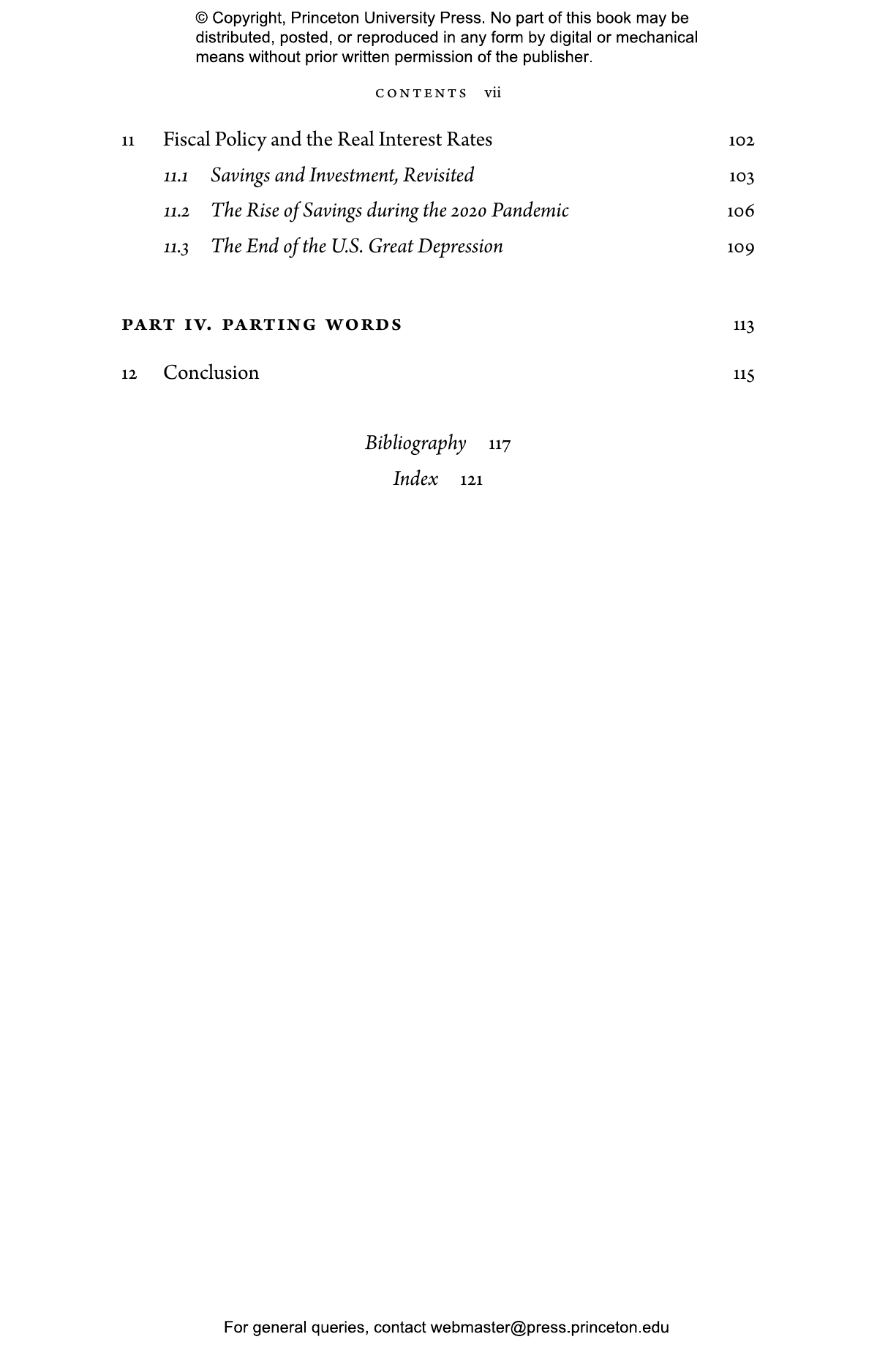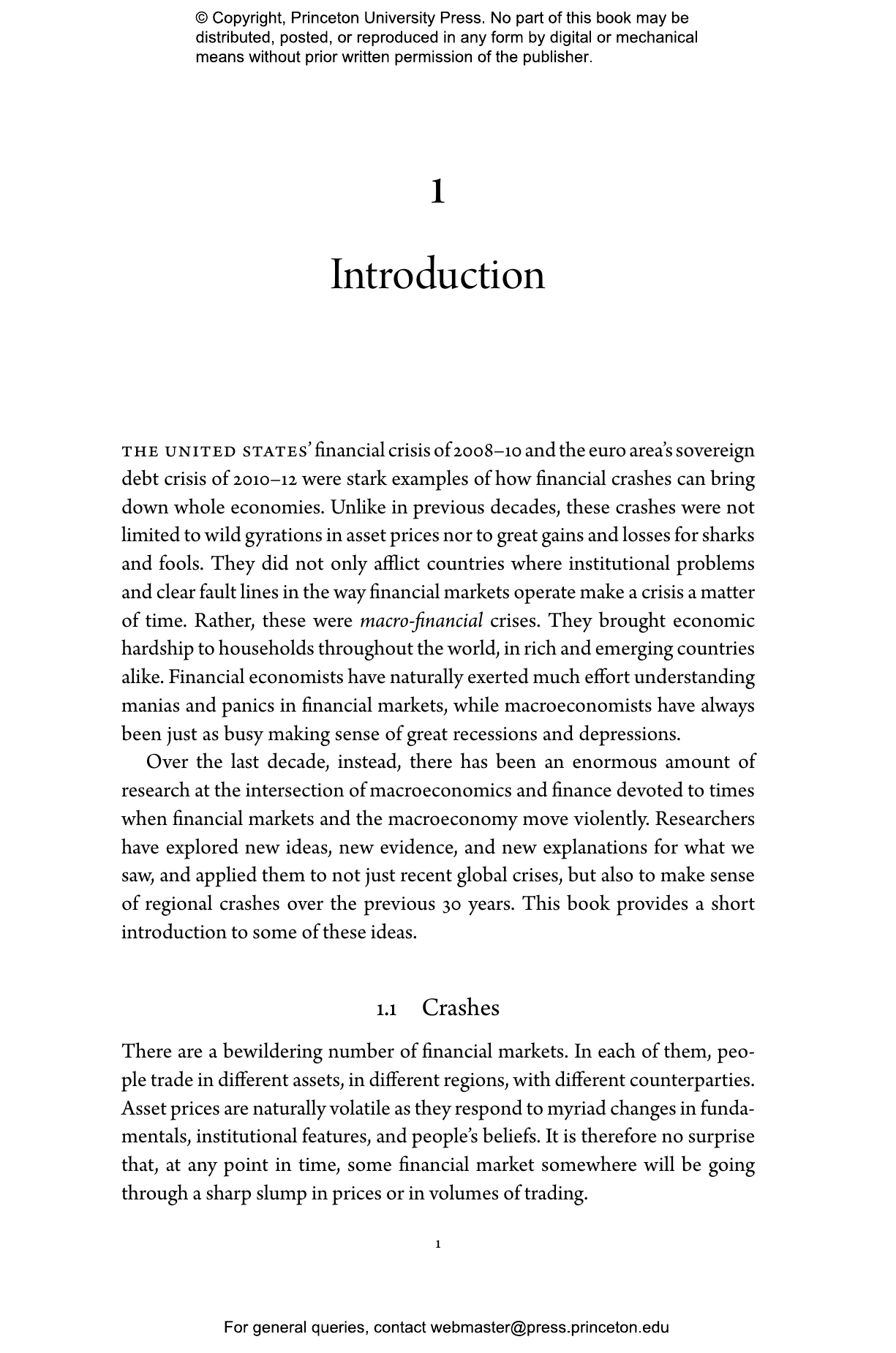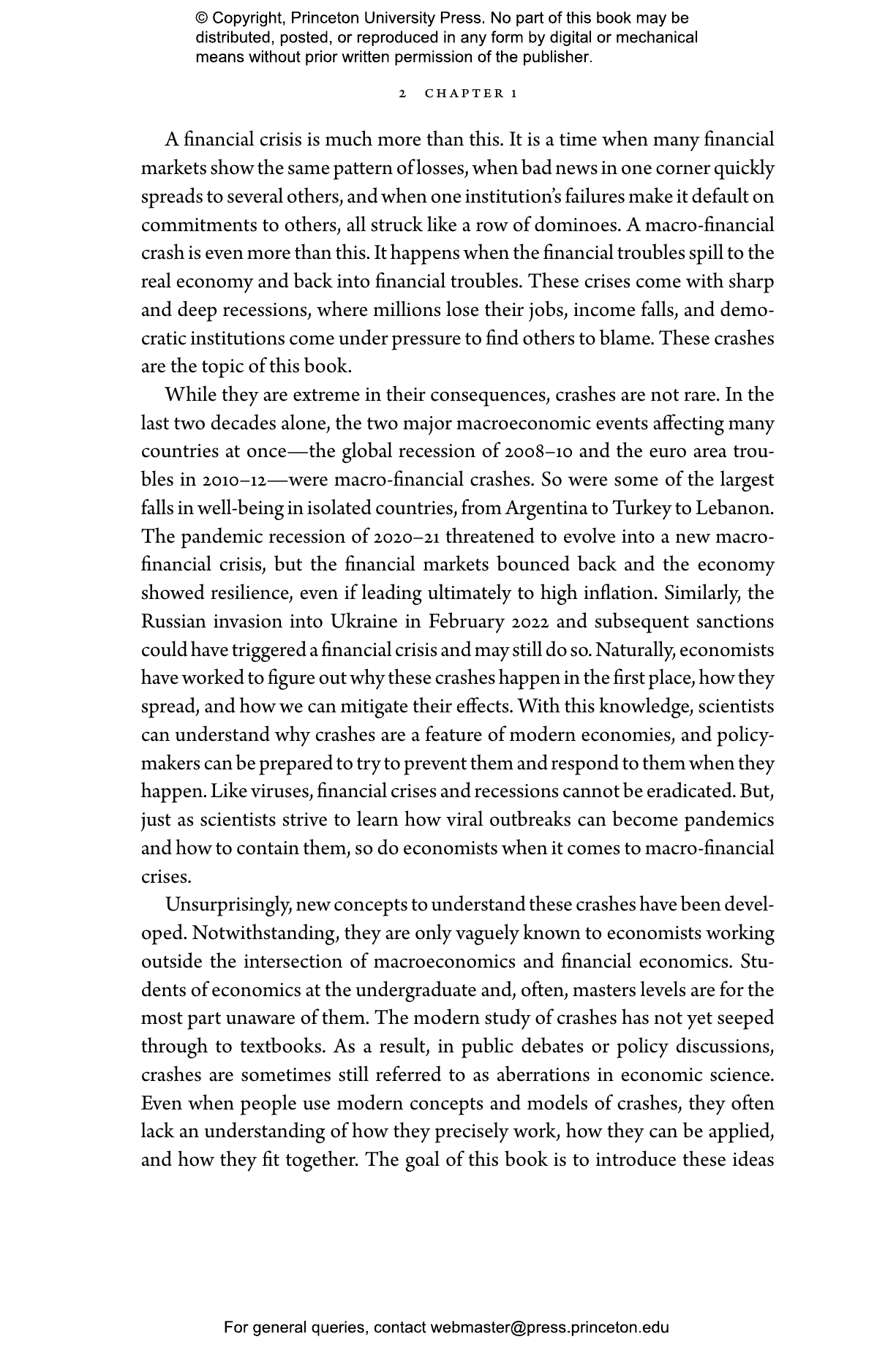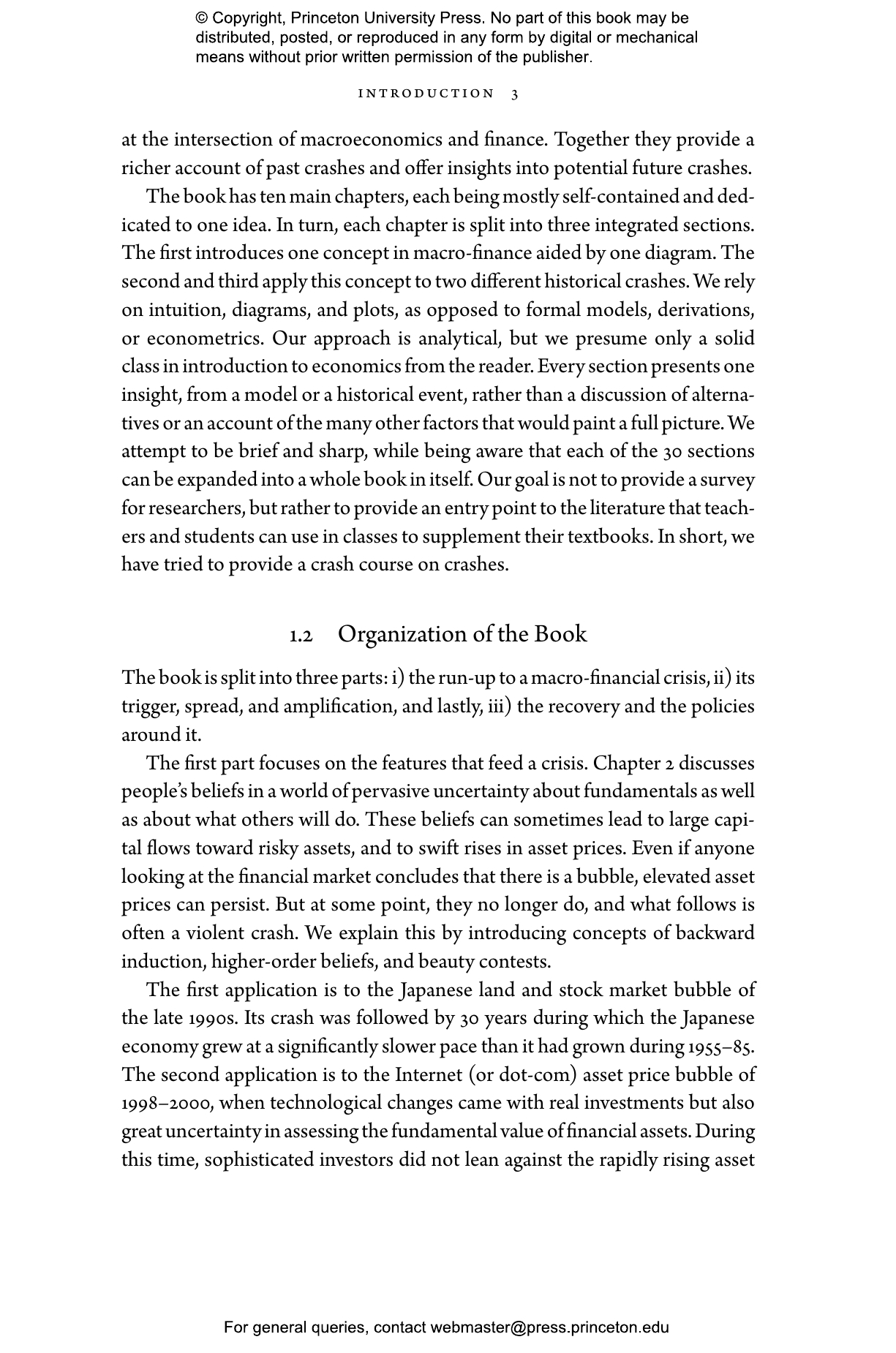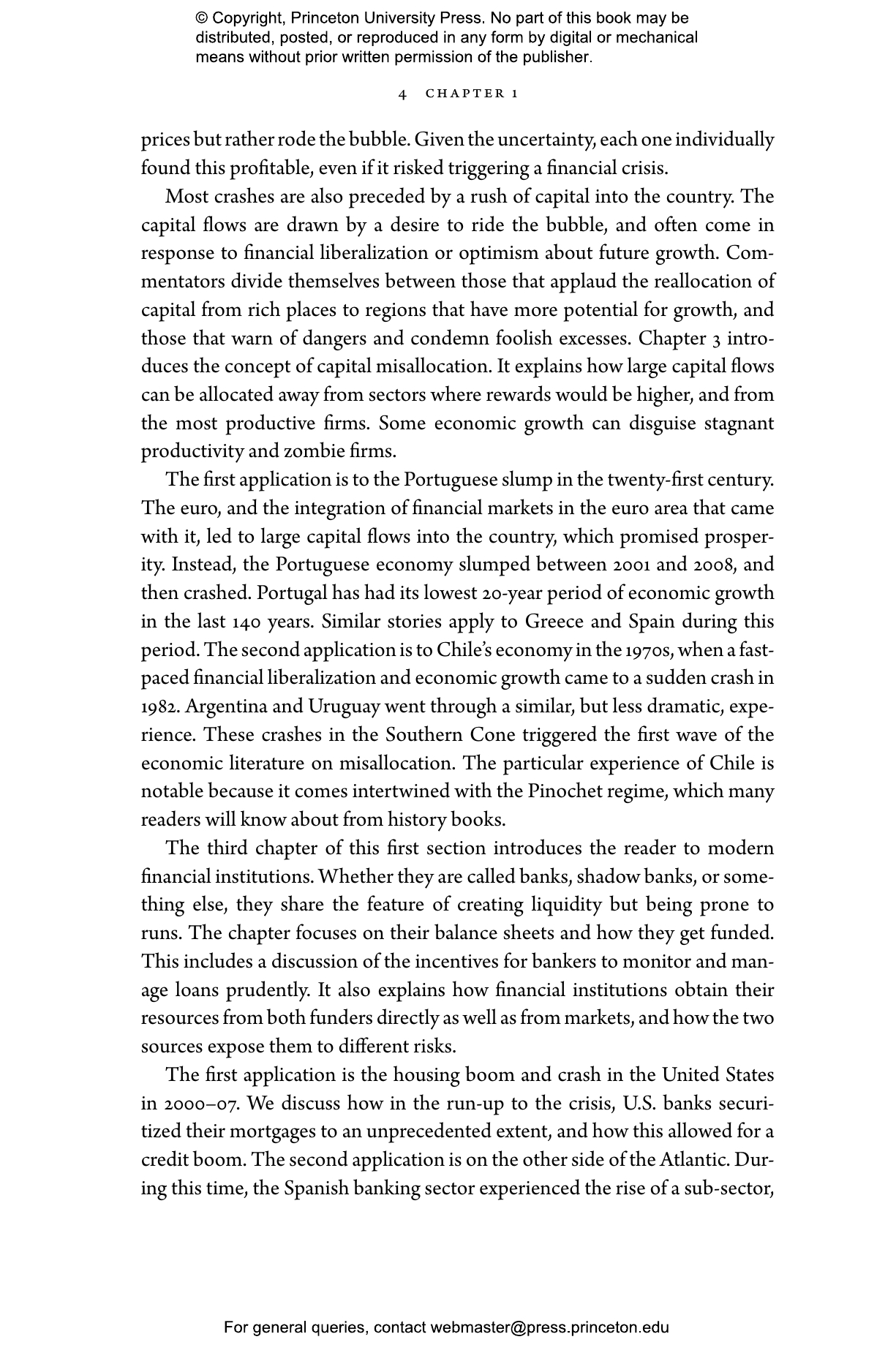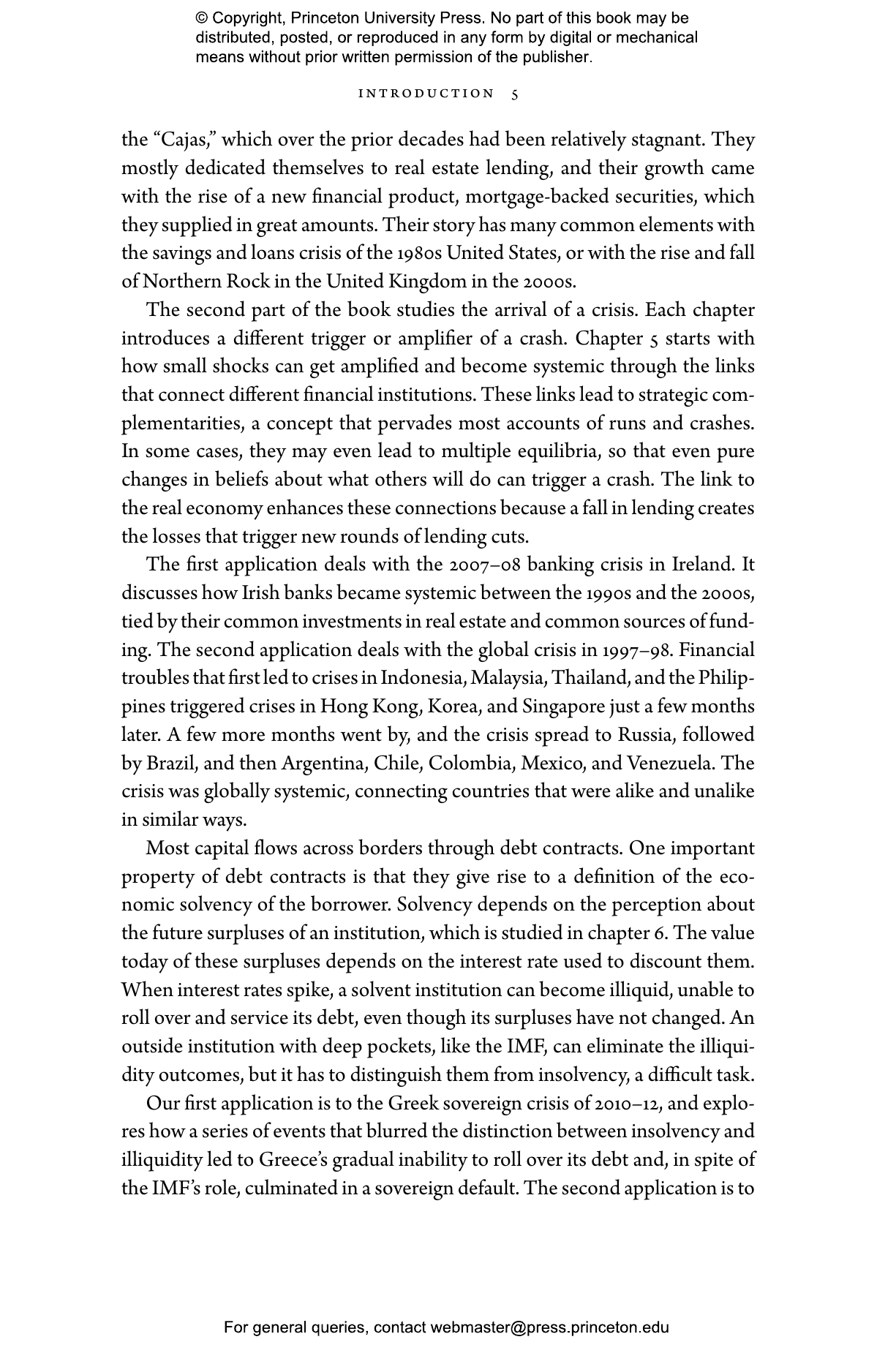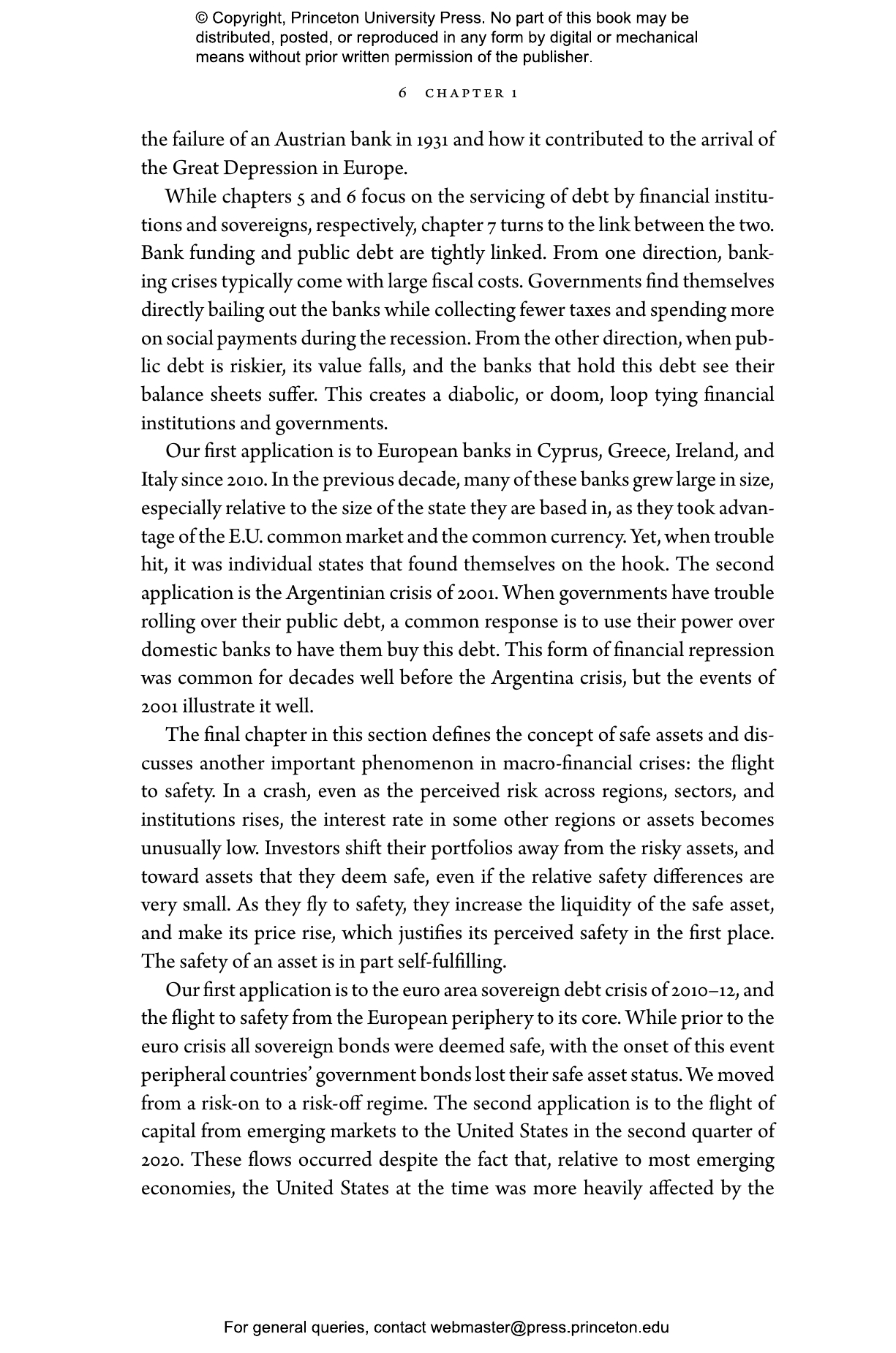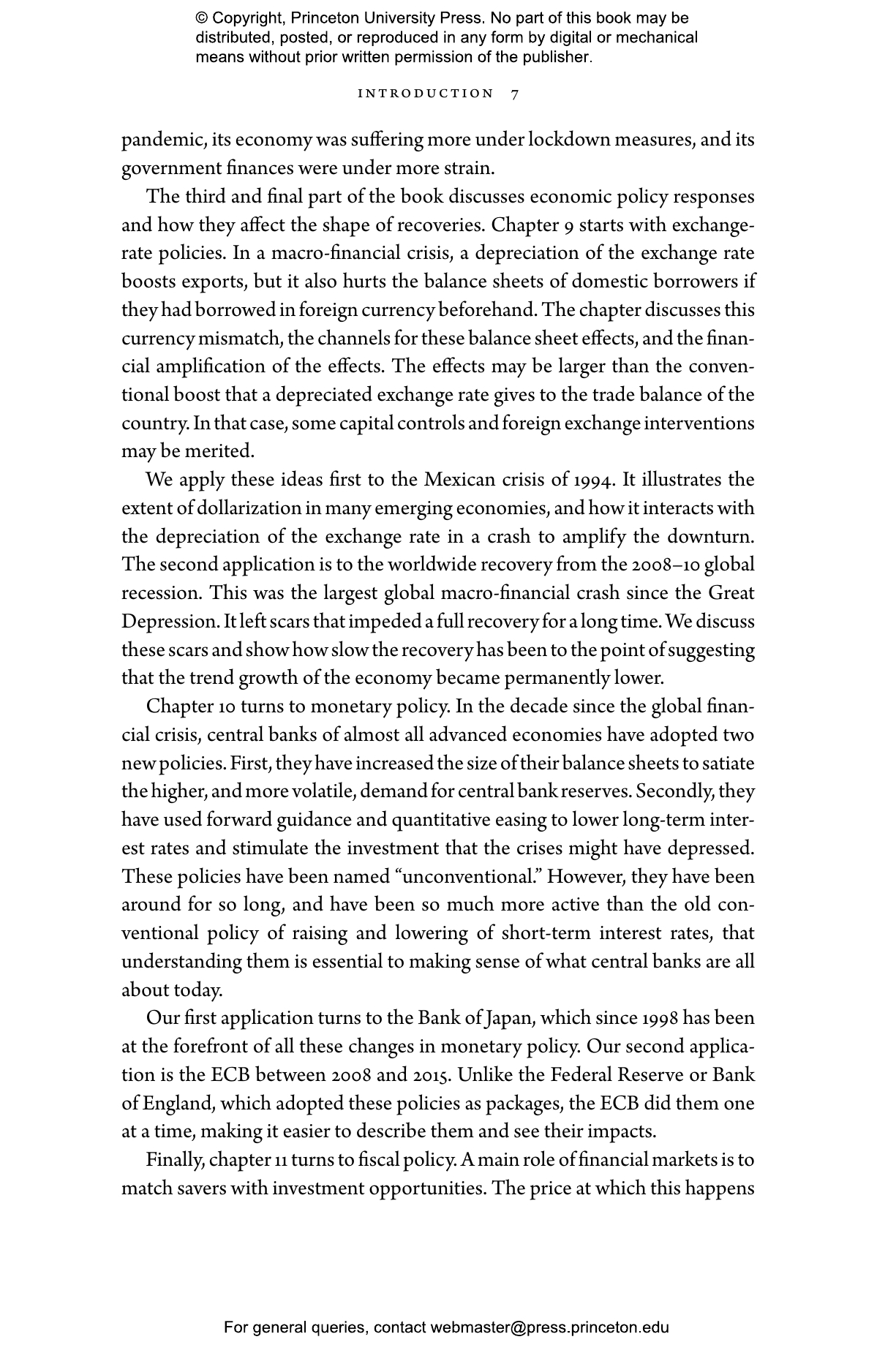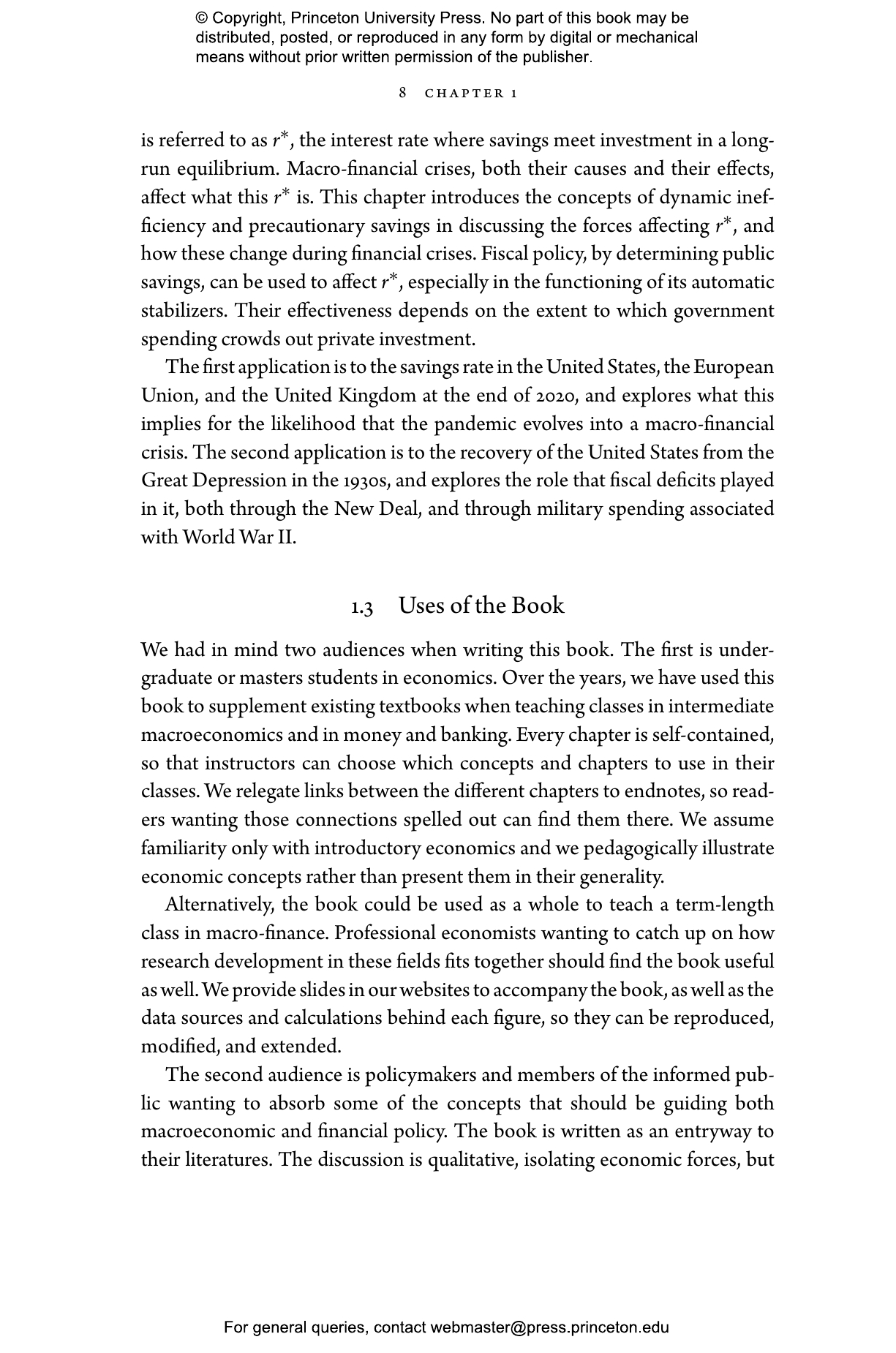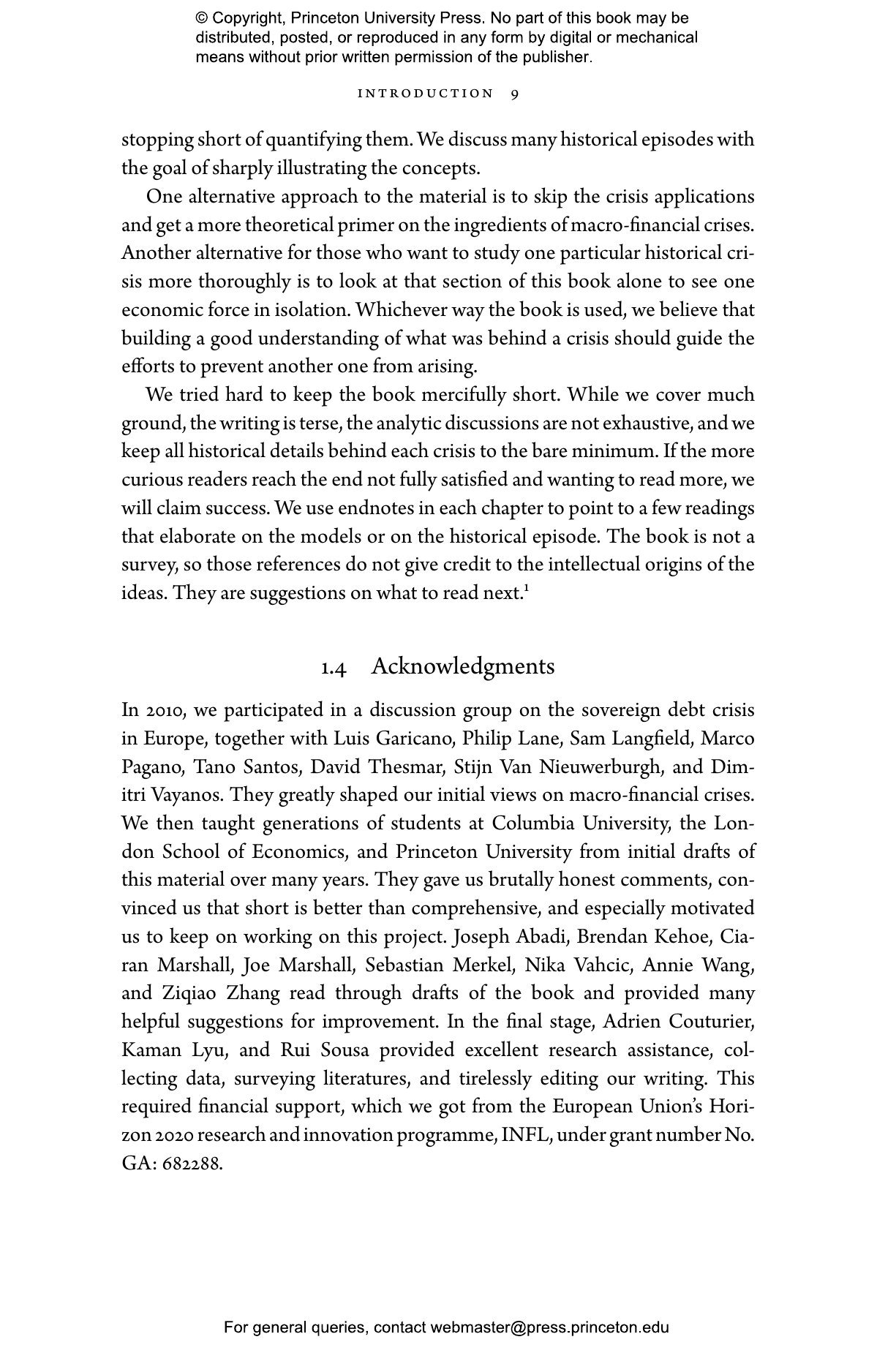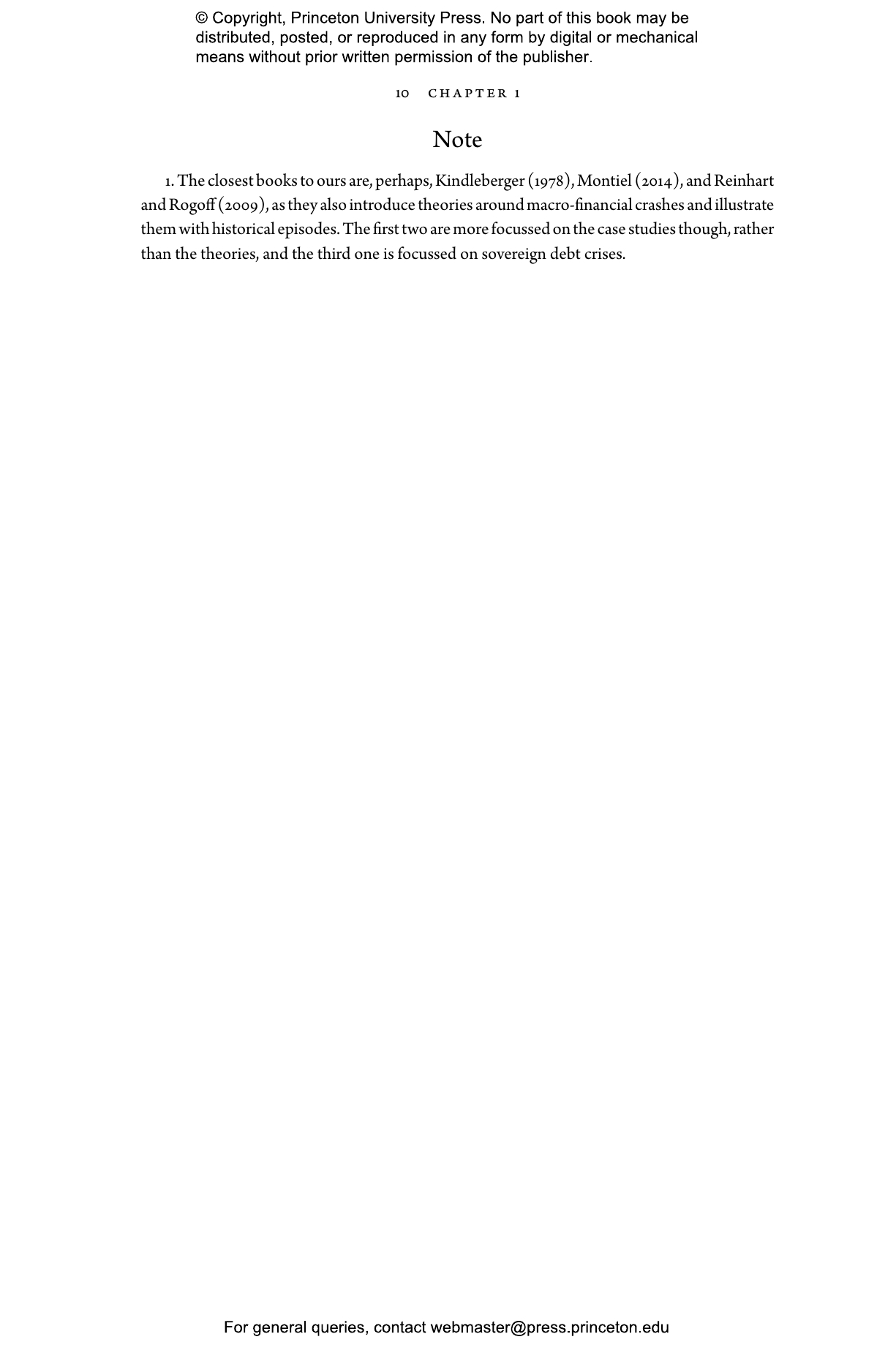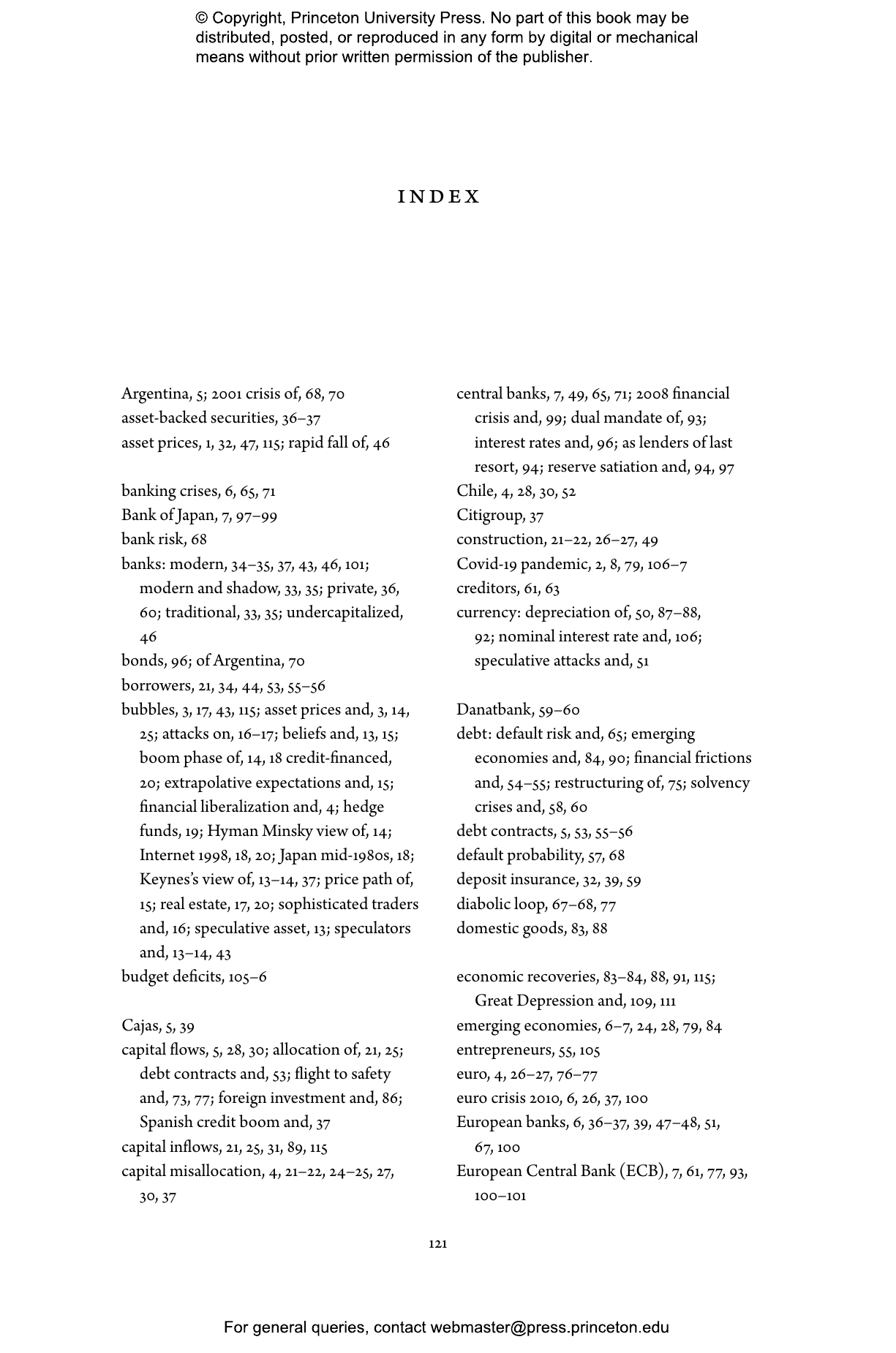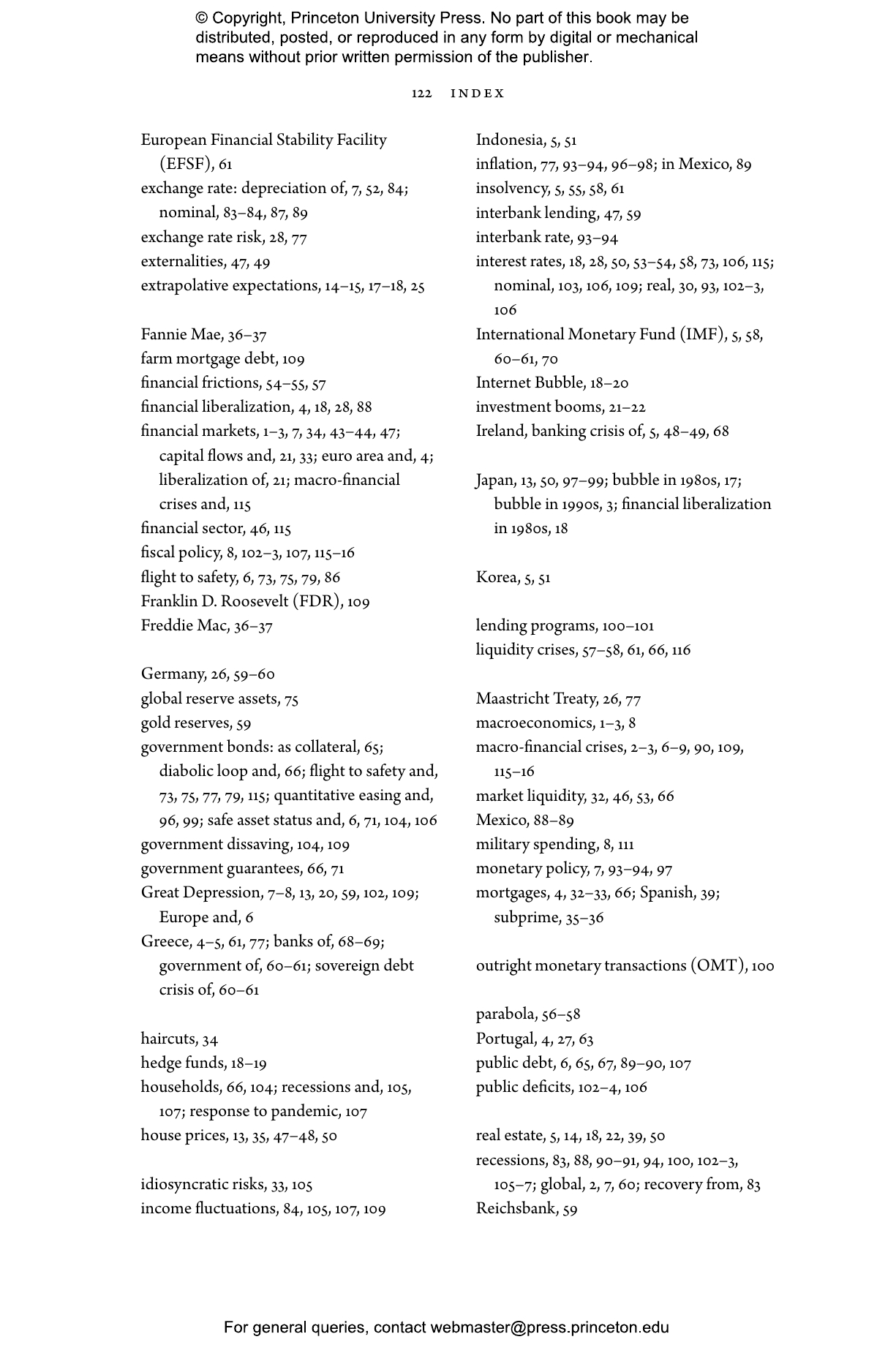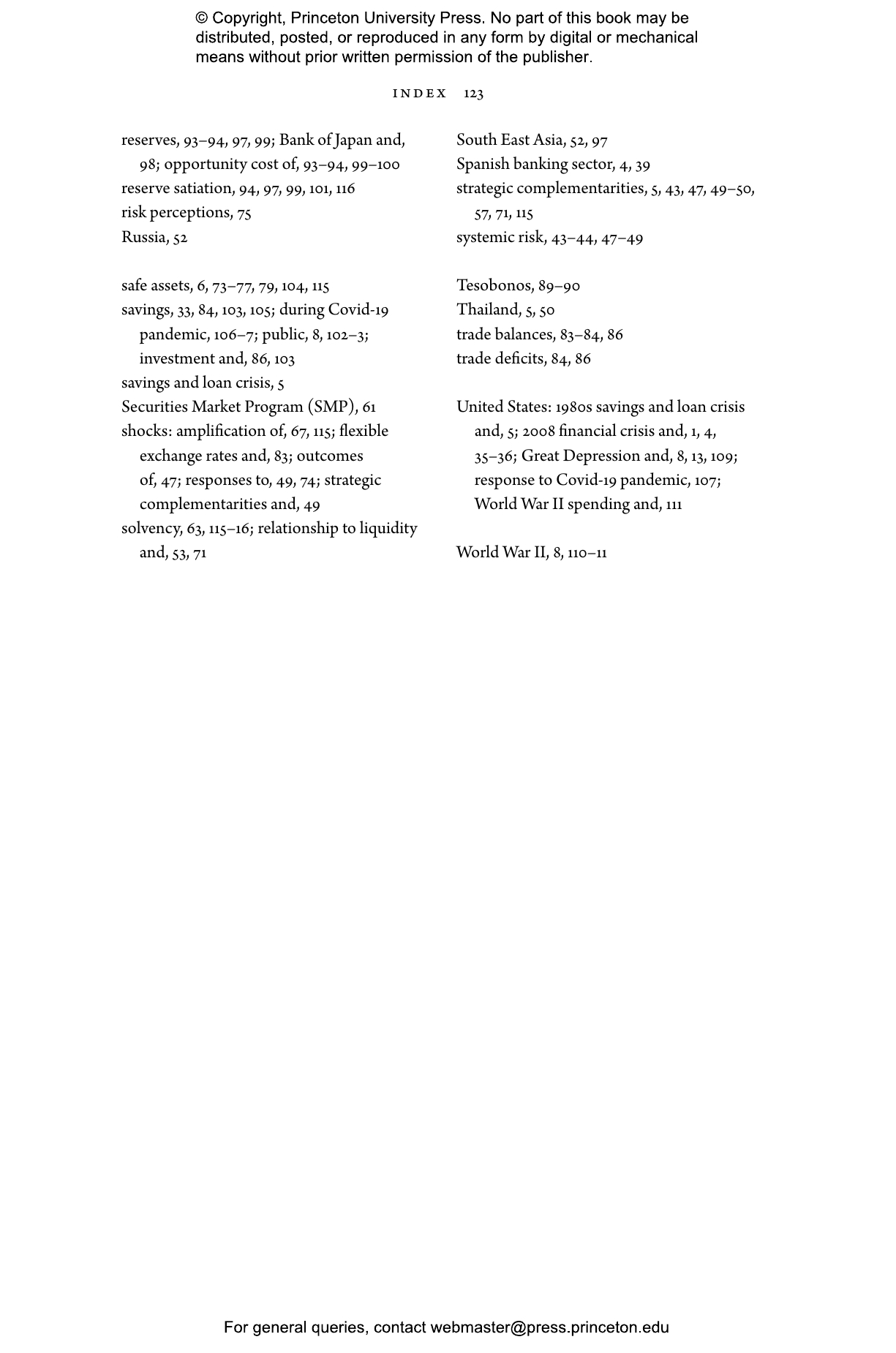With alarming frequency, modern economies go through macro-financial crashes that arise from the financial sector and spread to the broader economy, inflicting deep and prolonged recessions. A Crash Course on Crises brings together the latest cutting-edge economic research to identify the seeds of these crashes, reveal their triggers and consequences, and explain what policymakers can do about them.
Each of the book’s ten self-contained chapters introduces readers to a key economic force and provides case studies that illustrate how that force was dominant. Markus Brunnermeier and Ricardo Reis show how the run-up phase of a crisis often occurs in ways that are preventable but that may go unnoticed and discuss how debt contracts, banks, and a search for safety can act as triggers and amplifiers that drive the economy to crash. Brunnermeier and Reis then explain how monetary, fiscal, and exchange-rate policies can respond to crises and prevent them from becoming persistent.
With case studies ranging from Chile in the 1970s to the COVID-19 pandemic, A Crash Course on Crises synthesizes a vast literature into ten simple, accessible ideas and illuminates these concepts using novel diagrams and a clear analytical framework.
Awards and Recognition
- A Financial Times Best Book of the Year: Economics
"'Economies sometimes go through macro-financial crises.' Indeed, they do, as we have so painfully learned in recent decades. In this excellent and blessedly brief book, two distinguished scholars bring students and busy professionals up to date on the best thinking about how these crises originate and unfold and how policymakers need to respond. A valuable guide for those who need to understand what contemporary economics has to say on this vital topic."—Martin Wolf, Financial Times
"A must-read."—Ashoka Mody, Project Syndicate
"A Crash Course on Crises packs a serious punch, covering a substantial amount of theoretical ground illustrated by real-world examples drawn from four continents and almost 100 years."—Anjalika Badalai, Society of Professional Economists
"Designed as both a complement to existing macroeconomic textbooks and a present-day primer for policymakers, [A Crash Course on Crises] is brief, direct and accessible. It will likely adorn the reading lists of financial economics courses for years to come."—Rémi Meehan, International Affairs
"An excellent book on ‘macro financial crises’ that provides a succinct and highly accessible review of some important ideas that have emerged from research."—Anjan Thakor, Business Economics
“You learn most about the character of an economy when it is in crisis, and there have been many to learn from. This book provides a first comprehensive, intuitive, and insightful description of the many macro-financial crises of recent decades. The two leading macroeconomists of our times cut through the clutter and distill essential lessons for students and policymakers.”—Gita Gopinath, First Deputy Managing Director, International Monetary Fund
“In this crash course, two top economists introduce students to what we know about financial crises, with a taste of economic theory and an abundance of fascinating case studies.”—Greg Mankiw, Harvard University
“Written by two of the leading economic thinkers today, A Crash Course on Crises is an eminently readable introduction to modern thinking about the macroeconomic and financial underpinnings of economic crises. The book, targeted at the intelligent undergraduate, the curious policymaker, and the interested public citizen, unpacks complex ideas while explaining the causes of crises as well as the tools policymakers have used to recover from them. It will be very useful as accompanying reading in any macroeconomics or macro-finance course.”—Raghuram Rajan, author of The Third Pillar
“A remarkably fresh take on teaching financial crises, drawing on examples from around the world to eloquently exposit even the most difficult concepts in a thoroughly engaging format.”—Kenneth S. Rogoff, coauthor of This Time Is Different


